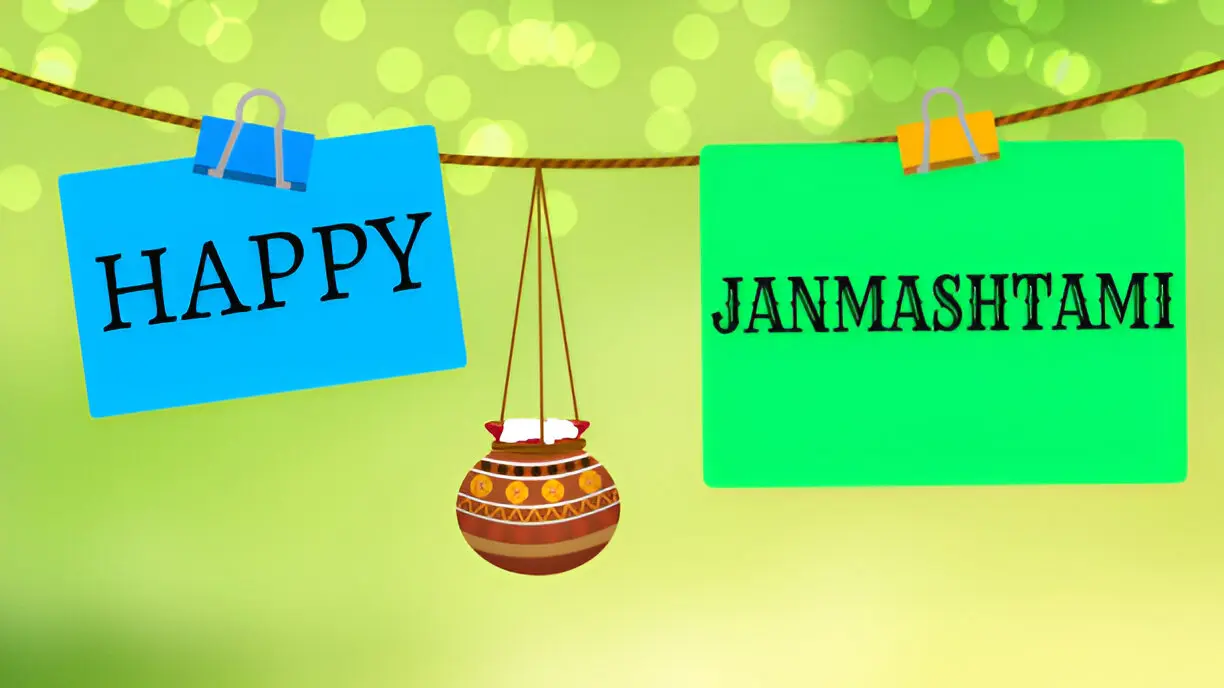Janmashtami Kab Hai? All You Need to Know About Janmashtami 2025
Janmashtami, also known as Krishna Janmashtami, Gokulashtami, or Sri Krishna Jayanti, is one of the most sacred Hindu festivals celebrated across India and around the world. It marks the birth of Lord Krishna, the eighth incarnation (avatar) of Lord Vishnu. The festival is observed on the Ashtami Tithi (eighth day) of the Krishna Paksha (waning phase of the moon) in the month of Janmashtami Kab Hai according to the Hindu lunar calendar.
As the festival is based on the lunar calendar, its Gregorian date changes each year. Devotees often ask, “Janmashtami kab hai?” (When is Janmashtami?). In this article, we’ll explore the exact date and timings of Janmashtami 2025, its astrological significance, and the spiritual and cultural practices associated with it.
Janmashtami 2025 Date and Time
In 2025, Janmashtami will be celebrated on Thursday, 14th August.
Important Timings for Janmashtami 2025:
- Ashtami Tithi Begins: 03:14 PM on 14 August 2025
- Ashtami Tithi Ends: 01:36 PM on 15 August 2025
- Rohini Nakshatra Begins: 02:41 PM on 14 August 2025
- Rohini Nakshatra Ends: 05:02 PM on 15 August 2025
Nishita Kaal Puja (Midnight Puja Time):
- 12:00 AM to 12:45 AM (midnight between 14 and 15 August)
- Duration: 45 minutes
This Nishita Kaal (midnight hour) is considered the most sacred, as Lord Krishna is believed to have taken birth exactly at 12:00 midnight.
Parana (Breaking the Fast) Time:
- 15 August 2025 after 01:36 PM, when Ashtami Tithi and Rohini Nakshatra have ended.
Why Janmashtami Is Celebrated
Janmashtami is celebrated to honor the birth of Lord Krishna, one of the most beloved deities in Hindu mythology. According to Bhagavata Purana and other ancient scriptures, Lord Krishna was born in a prison cell in Mathura, to Devaki and Vasudeva, at a time when the world was under the oppression of evil forces, especially King Kansa—his maternal uncle.
Krishna’s birth symbolizes the end of darkness and ignorance and the restoration of dharma (righteousness). His life and teachings, especially those found in the Bhagavad Gita, continue to guide spiritual seekers across the globe.
Significance of Janmashtami
Janmashtami is not merely a festival; it’s a spiritual journey, a celebration of the eternal truth and divine love. Lord Krishna’s teachings emphasize karma (righteous action), bhakti (devotion), and jnana (wisdom).
Celebrating Janmashtami is believed to:
- Purify the mind and soul
- Bring peace, prosperity, and happiness
- Help devotees align with dharma and truth
- Inspire devotion and inner transformation
Spiritual Meaning of Krishna’s Birth
Lord Krishna’s birth is seen symbolically in spiritual terms:
- Mathura symbolizes the mind.
- Devaki symbolizes devotion.
- Vasudeva symbolizes the purified intellect.
- Kansa symbolizes the ego.
The birth of Krishna within the heart signifies the rise of divine consciousness after the ego is conquered and devotion blossoms.
How Janmashtami Is Celebrated Across India
The festivities for Janmashtami are filled with devotion, joy, and color. Different regions celebrate it with unique traditions:
1. Fasting (Vrat) and Puja
Devotees observe vrat (fasting) throughout the day. Some keep a nirjal vrat (without food or water), while others take only milk and fruits. Homes and temples are decorated, and Krishna’s idol is worshipped with bhajans, flowers, and shringar (adornments).
2. Midnight Celebration (Janma Mahotsav)
At midnight, devotees celebrate the birth of Lord Krishna by:
- Performing abhishek (ceremonial bath of Krishna idol with milk, ghee, honey, curd, and water)
- Offering bhog (sacred food) and prasad
- Singing bhajans and chanting mantras like “Om Namo Bhagavate Vasudevaya”
3. Dahi Handi (Maharashtra and Gujarat)
In cities like Mumbai, Janmashtami is marked by the famous Dahi Handi event. Young men form human pyramids to reach and break a pot of curd hung high above the ground, reenacting Krishna’s playful butter-stealing exploits.
4. Rasa Lila and Krishna Leelas (Vrindavan and Mathura)
In places like Mathura, Vrindavan, and Gokul, which are associated with Krishna’s life, devotees perform Rasa Lila and Krishna Leelas (theatrical enactments of Krishna’s pastimes).
5. ISKCON Celebrations (Worldwide)
The ISKCON (International Society for Krishna Consciousness) temples around the world organize large-scale Janmashtami celebrations with:
Special Foods and Prasad
Some of the famous Janmashtami delicacies include:
- Makhan Mishri – Butter and sugar, Krishna’s favorite
- Panchamrit – A mixture of milk, curd, ghee, honey, and sugar
- Sweet dishes like Kheer, Peda, Ladoo
- Falahari snacks like Sabudana Khichdi, Singhara Poori
These are offered as bhog to Krishna before being distributed as prasad.
Astrological Relevance of Janmashtami
According to scriptures, Krishna was born under:
- Rohini Nakshatra
- Ashtami Tithi
- During the midnight hour
- In Taurus Moon sign
These conditions are believed to make the night of Janmashtami highly auspicious and spiritually potent. Many people perform astrological remedies, worship to overcome obstacles, and make new spiritual resolutions during this time.
Things to Do on Janmashtami 2025
- Wake up early and take a bath before sunrise
- Clean your puja space or altar
- Observe fasting with devotion
- Read scriptures like Bhagavad Gita or Bhagavatam
- Decorate a cradle for Bal Gopal (baby Krishna)
- Engage your family in singing Krishna bhajans
- Watch online or attend Krishna leela plays
- Break your fast (Parana) at the correct time on the next day
Global Observance
While Janmashtami is a major festival in India, it is also widely celebrated in:
- Nepal
- Mauritius
- Fiji
- Trinidad & Tobago
- USA, UK, Canada, and Australia by the Indian diaspora
Temples and spiritual communities worldwide observe the festival with collective chanting, cultural performances, and prasad distribution.
Conclusion: The Joy of Devotion
So, the answer to the question “Janmashtami kab hai?” in 2025 is 14th August, with the main celebration occurring at midnight leading into 15th August.
Janmashtami is not just about rituals and fasting. It’s about connecting to the divine, celebrating love, truth, and compassion, and letting the spirit of Krishna guide our lives.
Whether you’re celebrating with a temple community or quietly at home, let your heart be filled with joy and devotion on this blessed night.
Jai Shri Krishna!
Also Read-How to Keep a Busy Lifestyle Without Sacrificing a Clean Home

